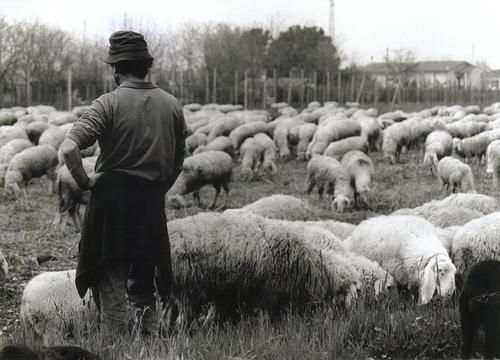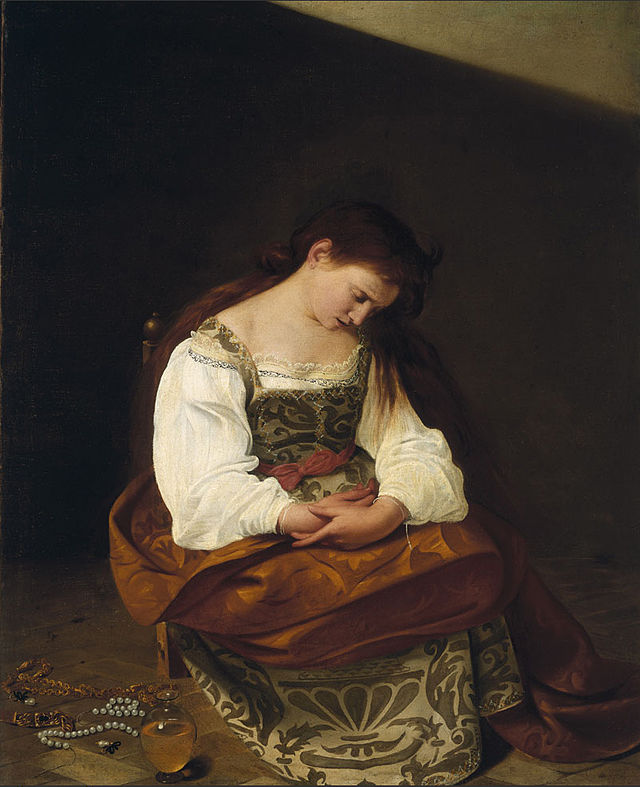The Patheos Catholic Channel is hosting a Symposium on the Family in light of the upcoming Extraordinary Synod on the Family in October and the recent release of the working document for the Synod.
When Sienna was a few months old, the Ogre and I began the pre-Cana process with our beloved priest. Being Protestant, I assumed it was just another in the series of endless hoops the Catholic Church made you jump through to do anything. There was a process for everything, and an acronym for every process. It seemed like a bureaucratic nightmare in Scrabblevision at the beginning, and I hated Scrabble.
We had been meeting regularly with our priest since I got pregnant, and after the storm of civil marriage, childbirth, and baptism had settled down, it was time to take pre-Cana seriously. We started with the FOCCUS test. I sat down with a no. 2 pencil and a cup of coffee, anxious to get the test done so I could study for a mid-term. By the fourth question, though, I was totally absorbed in the test and chewing on my pencil so hard that I chewed the eraser right off. The questions frightened me. The answers I gave frightened me worse. The answers I imagined that the Ogre would give completely terrified me.
I could see right away why the questions mattered, why they were in fact vital for couples to discuss before marriage. I was just totally blindsided, because I had never considered them before…not analytically, at least. Some of them gave voice to doubts about my husband that weighed on me and made me afraid and angry enough at him to throw wine glasses. Some of them gave voice doubts about myself that I tried to shove to the back of my mind and ignore, but that weighed on me enough to make it hard for me to get out of bed in the morning. They were questions that had worried me, plagued me even, but that I had only experienced as emotional reactions. We had fought about them, but I’d never considered talking about them calmly and rationally.
The results were a disaster. We were almost entirely incompatable. Our answers were diametrically opposed in almost every category. If we were just a normal engaged couple, I seriously doubt that any priest anywhere would have married us without extensive therapy, if at all.
But we weren’t. We had a baby, we were civilly married, and we were both determined to stick together. Neither of us wanted to deprive Sienna of the other, neither of us wanted to go it alone, and we loved each other — or at least, we wanted to.
Our priest knew those things, so instead of throwing in the towel, we talked through the test. For months. They were difficult months, and there were some questions we did not come to a resolution on. In too many areas, neither of us would give an inch. We were too proud and too selfish, and too unaware of it.
In the meantime, we were civilly married and living together with our infant daughter. We were not living as brother and sister. We were living in sin, while trying slowly to rectify habitual sin ingrained in each us over the years of our lives. Our concupiscence naturally took on dramatically different forms, and we found ourselves in the difficult situation of fighting a war on two fronts; on one, the familiar battle we’d fought (or run from) all our lives, but on the other, a new battlefield with new rules, a new enemy, new weapons, unfamiliar terrain, and an ally that often wanted to chuck wine glasses instead of fight.
We were both of us living in a state of mortal sin on multiple counts. I wasn’t even Catholic, nor baptized, so the graces of the sacraments were utterly inaccessable. The Ogre was Catholic intellectually, but not in his will, and could not partake of the graces of the sacraments because of it. We came from such different backgrounds that we might as well have been alien species. We didn’t know how to love, much less how to love each other. We had only this one thing holding us together — the embodiment of the promise we had made to each other, however unconscious of it we were at the time. We had this daughter, and we wanted to do right by her, and by each other.
Our priest knew that. I don’t know if he had some kind of special insight into souls (though I think it likely) or whether he just wanted to do everything he could to give a child the opportunity to live life with both her parents by her side, but he took the long road with us. He had to balance his concern with the fate of our immortal souls with the reality of our human nature in a temporal world. In doing so, he led our family through the valley of the shadow and into a fragile dawn.
Over time, we’ve worked through those issues the FOCCUS test brought up. We’ve learned to give when we didn’t want to, and we’ve both found ourselves surprised to realize that we’d been wrong all along. We’ve also learned to stand our ground, but in humility — we’ve learned to be stubborn in defense of truth instead of in self-defense. We’re still working through those issues, though, and we probably will be forever. Some people start out on the same page and read the rest of the book peacefully. For us, marriage is tearing the book apart until we come to the last page and realize that we can’t tear this one up, since it’s the only ground we have left to stand upon.
It’s not ideal, I guess, but it’s real. We’re not a modern-day image of the Maritains by any means — we’re just two sinners, trying to shove each other to heaven like Sisyphus with his rock. Sometimes one of us rolls right over the other, but we always get back up and try again.
I don’t think we could have done that if we hadn’t been counseled, from the very start, to have patience — with ourselves and with each other. I don’t think we would have believed it was necessary if our priest hadn’t had patience with us. I don’t think that we would be a family today if it weren’t for Christ working through one of his priests, to herd lost sheep through the storm, slowly, carrying them when necessary, until they are safely back in the folds of the flock. That’s what pastoral means, after all — devoted to the care and protection of livestock. But the spiritual guidance of a congregation is not simply a matter of caring for the physical well-being of animals. The pastor must care for the spirit in the body, for the eternal in the temporal. No priest can truly heal the wounds of the spirit without being aware of the limitations of the flesh, and the heroic task set before any pastor of cohabitating couples is the guidance of a soul in a body with the ultimate goal of uniting the couple in harmony with themselves, each other, and Christ.The pastor must work in time, as the Spirit does, with faith, hope, and love ever-present.
It is not a task I envy anyone, nor do I have the first clue how a pastor should go about it. The characters of the individuals, the dynamics of their relationship, and their respective spiritual maturity or naivety must all be considered. All I can say definitively is that pastoral care, which does not follow a law or prescription but is rather prayerfully tailored to the unique spiritual and temporal realities of the sheep in question, can make or break a family. In my case, I will be eternally grateful for our pastor, without whom our family might never have been.
Related:
Deacon Greg, “Synod: what about unmarried couples living together?”











